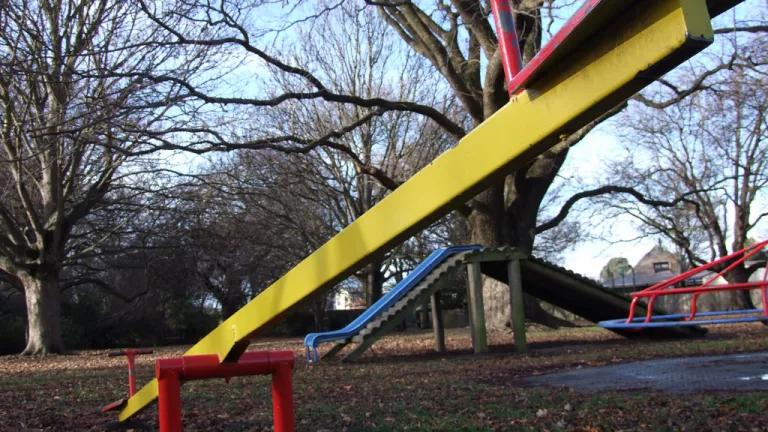Must We Choose Between Clean Air and a Stable Climate?
A new study tells us how we can have both.

Pollution measures often treat greenhouse gases and air pollutants as two sides of a seesaw. Actions to reduce ozone or particulate matter (a family of airborne pollutants) tend to result in increased carbon pollution and vice versa.
Oil extraction is a good example. Energy companies typically burn (or “flare”) the methane that leaks out of a well during drilling, which reduces the chemical’s potency as a greenhouse gas. The process, however, also increases the emission of black carbon, a major component of particulate matter.
Viewed this way, the decision between healthier air and a stable climate seems like a Sophie’s choice. And the decisions made by the United States and the European Union illustrate just how tricky the situation is. U.S. law tends to prioritize clean air over carbon cuts—that’s why the Clean Air Act was only recently found to apply to carbon dioxide. Europe is willing to tolerate dirtier air to lower carbon emissions, which is why diesel cars—fuel-efficient vehicles that emit high levels of nitrous oxides—are more common across the pond. Neither approach is perfect. The United States remains among the world leaders in greenhouse gas emissions per capita, while Europeans sacrifice 7.5 months of their life expectancy to air pollution.
A new study by scientists based in Europe and China, released today in the journal Atmospheric Chemistry and Physics, argues that air quality and climate change measures should be viewed as complementary rather than counterbalancing. Many steps to address air pollutants can also limit global warming, if policies look at the root problem rather than taking weaker actions aimed at containing the damage.
The paper points at methane leaks in oil drilling as an example. Methane isn’t just the world’s second-most prevalent greenhouse gas—it’s also a potent air pollutant. Once in the atmosphere, methane reacts with other chemicals to produce ozone. Ozone in the troposphere—the part of the atmosphere where we live—can find its way into our lungs, where it irritates airway linings and can cause chronic respiratory disease.
Capturing methane before it escapes into the atmosphere is therefore a win for both air quality and climate change. The study’s authors argue that governments ought to focus their efforts more strongly in these win-win initiatives.
By requiring more aggressive methane-capturing technology, along with a suite of similar initiatives like clean cook stoves and the adoption of LED lightbulbs, the researchers found that we can slow global warming by 0.22 degrees Celsius (0.5 degrees Fahrenheit) by the year 2050. The benefits would double in the Arctic, where things are heating up most quickly. At the same time, the recommended measures could cut the emission of black carbon by 80 percent and methane by 50 percent.
In short, it’s time to get off the air pollution–climate change seesaw. We don’t have to choose between choking on soot and drowning in rising seas.
This article was originally published on onEarth, which is no longer in publication. onEarth was founded in 1979 as the Amicus Journal, an independent magazine of thought and opinion on the environment. All opinions expressed are those of the authors and do not necessarily reflect the policies or positions of NRDC. This article is available for online republication by news media outlets or nonprofits under these conditions: The writer(s) must be credited with a byline; you must note prominently that the article was originally published by NRDC.org and link to the original; the article cannot be edited (beyond simple things such grammar); you can’t resell the article in any form or grant republishing rights to other outlets; you can’t republish our material wholesale or automatically—you need to select articles individually; you can’t republish the photos or graphics on our site without specific permission; you should drop us a note to let us know when you’ve used one of our articles.

What Is the Air Quality Index?
How to Become a Community Scientist
Public Health Scientist and Advocate